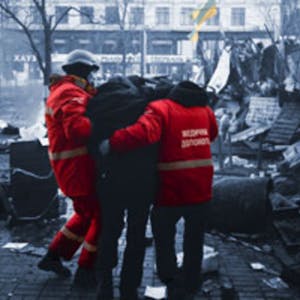Violence Against Healthcare is a crucial course offered by the University of Geneva, delving into the impact of violence on health care globally. It presents practical measures, ethical principles, legal frameworks, and community involvement in addressing and reducing violence against health care.
Certificate Available ✔
Get Started / More Info
The course modules cover practical measures, ethical principles, legal frameworks, and community roles in reducing violence against health care, providing comprehensive insights into addressing this critical issue.
Violence Against Healthcare course commences with a general introduction, emphasizing the importance of addressing violence against health care. It provides a comprehensive syllabus, key terms, and acknowledgments, setting the stage for the subsequent modules.
Module 1 focuses on the ethical principles of health care in times of armed conflict and other emergencies. It delves into the challenges faced by health-care personnel and the ethical issues surrounding health care, offering insights from various perspectives and practical strategies.
Module 2 explores the legal framework on the protection of health-care delivery, addressing the scope of application of relevant legal frameworks, sources of international humanitarian law and international human rights law, and real-life case studies to highlight challenges and obligations.
Module 3 delves into the challenges and solutions related to ambulance and prehospital services in risk situations. It provides real-life examples and practical insights into addressing aggression, challenges, consequences, and operational dilemmas encountered in high-risk zones.
Module 4 focuses on hospital managers and their role in ensuring the preparedness and security of health-care facilities in armed conflict and other emergencies. It covers various aspects, including the well-being of health-care personnel, infrastructure, and risk analysis.
Module 5 explores military operational practice to ensure safer access to and delivery of health care. It discusses practical measures, targeting of health-care facilities, and the role of non-state armed groups, offering valuable insights into protecting health care in conflict zones.
Module 6 addresses the role of civil society members, including communities, National Societies, religious leaders, and health organizations, in advocating for the respect and protection of health care. It provides real-life examples and practical strategies for community involvement.
The course concludes with a global summary, emphasizing the importance of connecting individuals to end violence and build resilience, influencing behavior change to safeguard health care in conflict and emergency situations.
Diseño y Gestión de Proyectos de Desarrollo te prepara para liderar proyectos de impacto social y económico en América Latina y el Caribe.
This course delves into the intricacies of comparative political systems, exploring the theory of coalitions, electoral rules, party systems, and the dynamics of...
This course delves into the impact of rapidly changing global trends on business and society, equipping learners with the tools to analyze and adapt to these influences....
Explore the future of mobility with the People, Technology, and the Future of Mobility course. Learn about cutting-edge electric and autonomous vehicle technology...